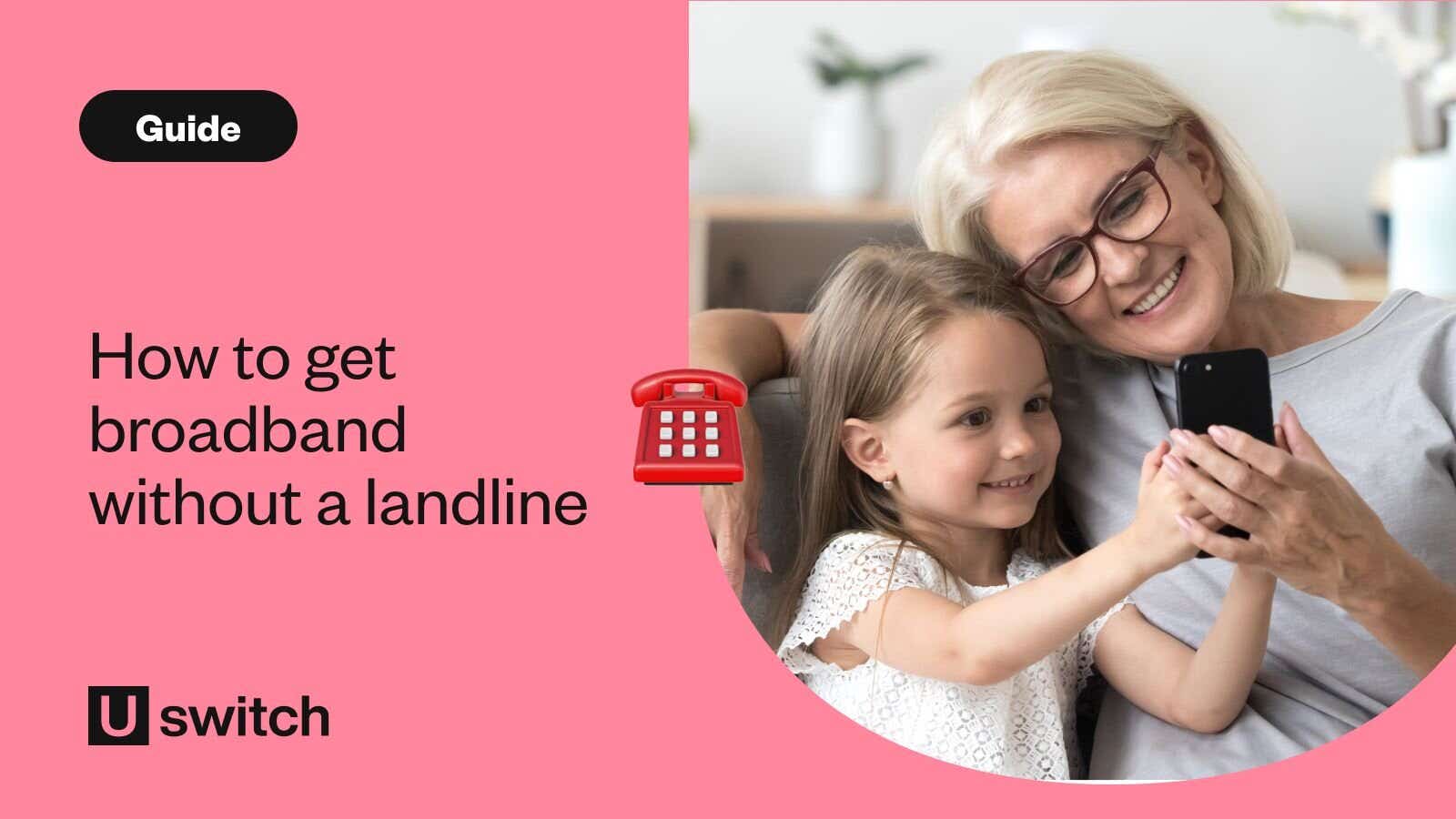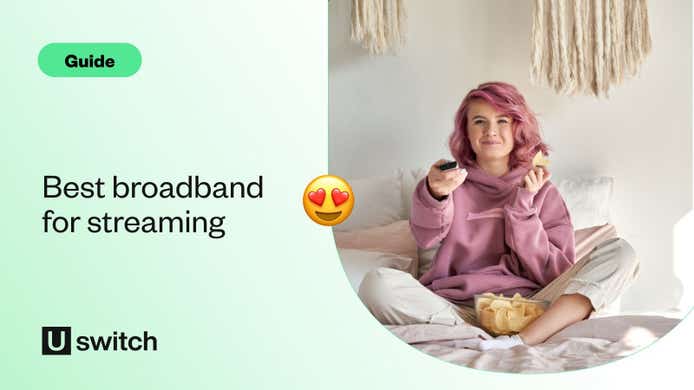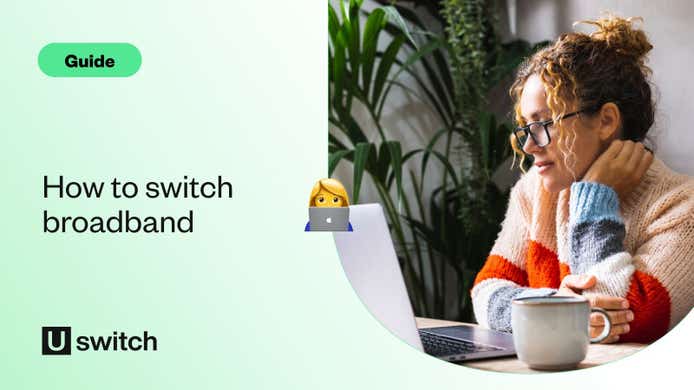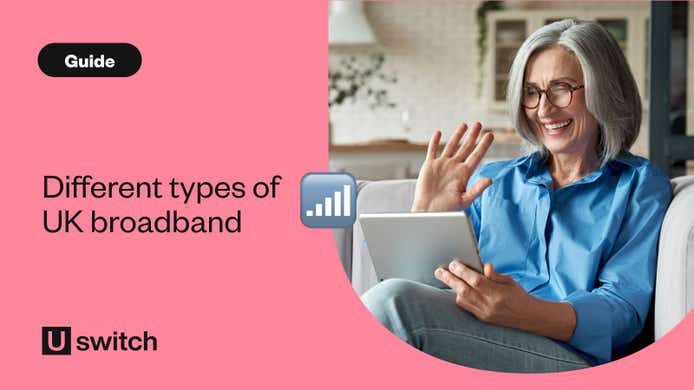If you're like many UK households, you probably don't use a landline anymore. And if you still own one, it's likely you don't use it as much as you used to. According to our research, four million homes have disconnected their landline altogether since 2000.
Some types of broadband still need a copper phone line to get to your home, but that doesn't mean you have to pay for a landline if you don't want one.
Similarly, faster types of broadband, like full fibre, don't need a copper phone line to get to your home, but they still let you use a digital home phone service if you want one. So it's not really a case of whether you need a landline or not, anymore.
Learn all about the difference between landlines and normal phone lines, and what your options are, with our guide.
Do I need a landline for broadband?
There's a good chance you might need a phone line to get online, as the most widely available types of broadband still need one to connect to your home. But even if you do, you don't need an actual landline phone for it to work, nor do you need to pay any extra line rental fees.
If you just want broadband, you only need to pay for broadband.
In fact, nowadays, you might not even need a phone line to get broadband. Full fibre doesn't need copper phone lines to get to your home, and it's now available to about two-thirds of the UK. So if you want to do away with the old phone line altogether, this may be your easiest option.
Do I still have to pay line rental?
Line rental is different from paying for a landline service. The most widely available broadband connections (part-fibre packages, for example) still rely on copper phone lines to reach your home, even if you don't use a landline phone at all.
Nowadays, you won't be charged extra for line rental, as the cost is just part of the overall price you pay for a broadband service. What would cost you extra is a dedicated home phone plan.
Browse our range of broadband-only deals
Choose between dozens of broadband deals on Uswitch.
How to get home internet without a copper phone line
To get fixed broadband without a copper phone line, you’ll need access to full-fibre broadband (also known as fibre-to-the-premises) or Virgin Media's cable broadband.
These are the only fixed broadband services that deliver an internet connection to your home without the need for the old copper phone lines. And they come with huge benefits too — they offer much faster, more reliable broadband connections, with ultrafast and gigabit broadband speeds available often at a relatively similar price.
At the time of writing, full fibre is still fairly limited across the UK at around two-thirds of national household coverage, and cable broadband is only available from Virgin Media, which covers around 60% of the country.
What's the cheapest no-landline broadband?
You can often save money if you don't select an additional landline plan from your broadband provider and stick to its broadband-only offering. But even when you do this, there will still be a range of different monthly prices depending on the internet speed, provider, and other factors.
However, you may find that if a smaller, more regional broadband provider is available to your home, the price offered is noticeably lower, even for very fast speeds.
These 'alternative' providers still offer an ultrafast, ultra-reliable full fibre service, but often with fewer costs to deal with than the big providers to run their network. So they tend to pass that saving onto customers, with speeds over 100Mbps sometimes on offer for less than £20 a month.
Not quite ready to switch broadband yet?
If you're still in your current broadband contract but you'd like to switch when it ends, feel free to provide its end date below. We'll send you a handy reminder when you're able to switch with no early exit fees.
Broadband renewal reminder
Tell us your contract end date and we'll remind you to save
Contract end date
Get reminders to find a better deal when your contract is ending. We may use your address and current provider to show you relevant deals. Terms and conditions apply. Privacy notice.
Which types of broadband need a copper phone line?
It's quite possible you can get internet with no phone line. But this will depend on whether the right broadband network is available in your area.
| Broadband type | UK coverage | Does it need a phone line? |
|---|---|---|
| Copper ADSL | 99% | Yes |
| Part-fibre | 98% | Yes |
| Full fibre | ~69% | No |
| Cable (Virgin Media) | ~60% | No |
| Mobile broadband | (N/A - check with network) | No |
| Satellite | (N/A - check with supplier) | No |
While ADSL and part-fibre broadband technically require a copper phone line, you don't need to set up a landline service. These phone lines just help to deliver broadband to your home.
Other types of fixed-line broadband, like full fibre or Virgin Media's cable network, use cables that can also deliver digital phone line services. So, the type of cable you use no longer affects whether you need to use a home phone.
Can I get no-contract broadband without a phone line?
Some providers offer 30-day rolling (or no-contract) packages that don't require notice to cancel. These packages usually come at a higher monthly price than long-term commitments since they offer much more flexibility than a normal broadband contract.
Any provider that offers a no-contract deal will have a broadband-only option. So you won't need to worry about paying line rental on a no-contract deal, as any cost for line usage is absorbed into the overall broadband price.
Compare no-contract broadband deals
Browse the full range of 30-day rolling (or no-contract) broadband offers on Uswitch.
Which providers offer broadband with no landline?
All well known broadband providers offer broadband-only deals. Some of the connections on offer may still need a phone line to get to your home, but you won't be required to pay any extra line rental - it will be treated like any other broadband deal.
If you're looking for a broadband connection with no copper phone line at all, most large providers also offer full fibre broadband deals that connect fibre-optic cables straight to your home.
No phone line is needed for full fibre or Virgin's cable broadband, and these connections are often faster and more reliable than those that still partly use copper cables.
Here are some providers available on Uswitch that offer no phone line deals (subject to availability at your home):
Can you get BT broadband without a landline?
Yes. In addition to its full fibre deals, BT won't charge you extra if you still need a phone line to get broadband at your home. It has a number of broadband-only deals to choose from, even if you can't get full fibre at your home.
More ways to get broadband only deals with no landline
If you don't have access to either full fibre or Virgin Media's cable broadband, the next best ways to ditch a phone line are with mobile broadband and satellite broadband.
Mobile broadband
Mobile broadband may be a good solution if you’re set on getting broadband without a landline and fixed-line broadband doesn't offer what you need.
Mobile broadband that runs on a 4G network will have average speeds of 24Mbps, whereas 5G broadband can offer speeds of up to 300Mbps at times.
4G speeds would be enough for basic online activities like email, Facebook, video calling and some TV streaming. 5G broadband offers similar speeds to some low-level full fibre packages, but the signal isn't as consistent as a fixed line connection.

You can either purchase a mobile internet dongle or a dedicated 4G or 5G router from a number of UK networks. Once a SIM card is inserted, it operates like a mobile broadband router. Then, just connect your various devices to the dongle via Wi-Fi, and you can access the internet without a phone line.
If you have a 5G mobile phone contract, you could also tether your devices to your phone to experience these speeds without a 5G broadband hub. But this is quite an impractical solution in the long term as it uses up a lot of data.
Read our more detailed guide on how to tether your mobile phone.
Should I choose mobile broadband?
Mobile broadband is a very flexible option since it can provide you with broadband without a phone line and no contract, and it gives you access to your internet connection wherever you are.
Its biggest disadvantage is reception, as plenty of areas in the UK have a weak signal. If you happen to live in one of these so-called ‘not-spots’, then mobile broadband won’t be a good option for you.
Before making mobile broadband purchases, you should always check each network's coverage maps — especially for 5G.
If mobile broadband sounds like it might suit your needs, compare Uswitch's best-selling mobile broadband deals now.
Satellite broadband
Satellite broadband is another option for those who want a broadband connection without any cables. It often serves as a great solution for people in very rural areas where fixed-line broadband is difficult to get to.

Satellite broadband used to be quite slow and unreliable, but it recently received a boost in connectivity since Starlink satellite internet became available across the UK.
It's much more expensive than most types of broadband (often starting from £60 per month). But for people in hard-to-reach areas of the country, it's the first satellite connection to deliver ultrafast average broadband speeds of above 100Mbps.
This makes it a viable alternative to normal broadband for those who can spare the cost, and provides a similar experience to full fibre without the cost of getting it installed somewhere difficult for providers to reach.
Compare our best broadband deals
Search on Uswitch to find the right broadband package for you.










